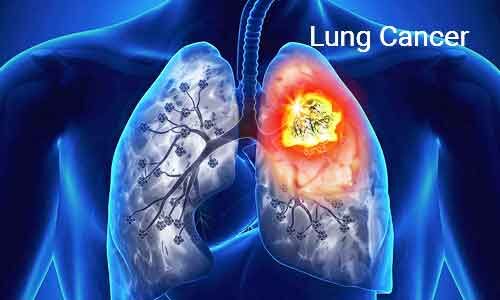- Home
- Medical news & Guidelines
- Anesthesiology
- Cardiology and CTVS
- Critical Care
- Dentistry
- Dermatology
- Diabetes and Endocrinology
- ENT
- Gastroenterology
- Medicine
- Nephrology
- Neurology
- Obstretics-Gynaecology
- Oncology
- Ophthalmology
- Orthopaedics
- Pediatrics-Neonatology
- Psychiatry
- Pulmonology
- Radiology
- Surgery
- Urology
- Laboratory Medicine
- Diet
- Nursing
- Paramedical
- Physiotherapy
- Health news
- Fact Check
- Bone Health Fact Check
- Brain Health Fact Check
- Cancer Related Fact Check
- Child Care Fact Check
- Dental and oral health fact check
- Diabetes and metabolic health fact check
- Diet and Nutrition Fact Check
- Eye and ENT Care Fact Check
- Fitness fact check
- Gut health fact check
- Heart health fact check
- Kidney health fact check
- Medical education fact check
- Men's health fact check
- Respiratory fact check
- Skin and hair care fact check
- Vaccine and Immunization fact check
- Women's health fact check
- AYUSH
- State News
- Andaman and Nicobar Islands
- Andhra Pradesh
- Arunachal Pradesh
- Assam
- Bihar
- Chandigarh
- Chattisgarh
- Dadra and Nagar Haveli
- Daman and Diu
- Delhi
- Goa
- Gujarat
- Haryana
- Himachal Pradesh
- Jammu & Kashmir
- Jharkhand
- Karnataka
- Kerala
- Ladakh
- Lakshadweep
- Madhya Pradesh
- Maharashtra
- Manipur
- Meghalaya
- Mizoram
- Nagaland
- Odisha
- Puducherry
- Punjab
- Rajasthan
- Sikkim
- Tamil Nadu
- Telangana
- Tripura
- Uttar Pradesh
- Uttrakhand
- West Bengal
- Medical Education
- Industry
Diagnostic procedure for lung cancer has 17 percent complication rate: JAMA

USA: CT lung cancer screening exams results in complication rate of almost 17%, reveals a recent study. The study, published in the journal JAMA Network Open, highlights the significance of minimizing potential harms resulting from screening by ensuring adherence to clinical guidelines for management and evaluation of screening-detected lung abnormalities and by using shared decision-making.
The Centers for Medicare and Medicaid Services has begun coverage of lung cancer screening with low-dose computed tomography (LDCT) for people aged 55 to 77 years who meet screening eligibility criteria, based on the results from the National Lung Cancer Screening Trial (NLST). A previous study found complication rate of diagnosis procedures for lung-abnormalities to be more than double than that reported by NLST.
A major criticism of the previous analysis was that these estimates may not be directly applicable to the screening cohort because the study used claims data predating insurance coverage of LDCT screening. In this updated analysis, Hui Zhao, The University of Texas MD Anderson Cancer Center, Houston, and colleagues evaluated the complication rates among patients who received lung cancer screening with LDCT in community settings.
In the case-control study, the researchers used Current Procedural Terminology CPT codes for identifying patients who had LDCT screening between February 1, 2015, and June 30, 2017, and underwent an invasive diagnostic procedure within 6 months of LDCT. All the included patients were required to be enrolled in private health insurance 6 months before and after LDCT to calculate comorbidity scores and monitor the use of invasive procedures, respectively.
Invasive diagnostic procedures were categorized into following groups: cytology or needle biopsy, bronchoscopy, thoracic surgery, and other surgical procedures. A 1:1 case-control direct matching method was applied to generate study cohort with age, sex, comorbidity score, state of residence, and quarter-year of LDCT screening as matching factors. The Strengthening the Reporting of Observational Studies in Epidemiology (STROBE) reporting guideline was followed.
Key findings of the study include:
- Among 18 887 patients (median age, 61 years; 9978 [52.8%] men) who had LDCT screening, 665 patients (3.5%) underwent invasive diagnostic procedures within 6 months after LDCT screening.
- 591 matched pairs were included in the case-control study.
- The overall incremental complication rate for all 4 types of invasive diagnostic procedures was 16.6%, which was less than the 22.8% rate reported in the previous analysis but greater than the 9.4% rate reported in the NLST.
- Similar patterns were observed by procedure type.
- The incremental complication rates from our updated analysis were 38.5% for thoracic surgery, 20.4% for bronchoscopy, and 9.2% for cytology or needle biopsy.
- The overall complication rates by severity were 1.7% for major, 9.3% for intermediate, and 11.2% for minor complications.
"Screening with LDCT reduces lung cancer mortality in high-risk populations. The findings of this case-control study indicated an overall complication rate of 16.6% among patients who underwent invasive diagnostic procedures after lung cancer screening with LDCT in real-world circumstances. Most complications were of minor or intermediate severity," wrote the authors.
"Our study highlights the importance of minimizing potential harms of screening by using shared decision-making and ensuring adherence to clinical guidelines for evaluation and management of screening-detected lung abnormalities," they concluded.
"Updated Analysis of Complication Rates Associated With Invasive Diagnostic Procedures After Lung Cancer Screening," is published in the journal JAMA Network Open.
DOI: https://jamanetwork.com/journals/jamanetworkopen/fullarticle/2774245
Dr Kamal Kant Kohli-MBBS, DTCD- a chest specialist with more than 30 years of practice and a flair for writing clinical articles, Dr Kamal Kant Kohli joined Medical Dialogues as a Chief Editor of Medical News. Besides writing articles, as an editor, he proofreads and verifies all the medical content published on Medical Dialogues including those coming from journals, studies,medical conferences,guidelines etc. Email: drkohli@medicaldialogues.in. Contact no. 011-43720751


